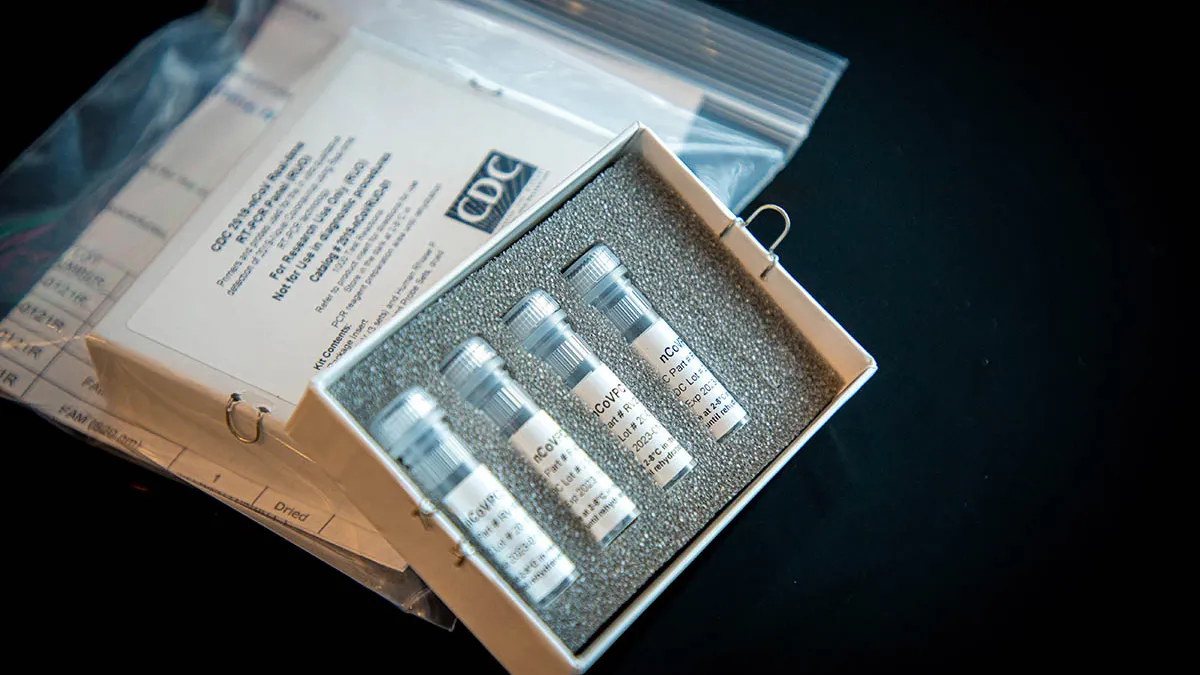Dive Brief:
-
FDA Commissioner Stephen Hahn on Wednesday told a House appropriations subcommittee that the agency is “aware of pressure in the supply system on the reagents” needed to run diagnostic tests for the novel coronavirus. Specifically, Hahn said “there are pressures particularly around RNA” required for COVID-19 testing.
-
FDA's medical device shortage group has been "24/7 working on this issue,” Hahn testified. “We’re out there with the laboratories providing them [with] alternatives for these reagents." However, he stopped short of characterizing the reagent supply situation as a shortage.
- Qiagen, a major supplier of RNA extraction kits, confirmed to MedTech Dive on Thursday that "extraordinary demand for coronavirus testing workflows" is challenging the company's capacity to supply certain RNA kits used for SARS-CoV-2-related LDTs.
Dive Insight:
As both commercial and public health labs ramp up their respective capacities, they could find it harder to access supplies of reagents that are critical for testing.
President Donald Trump in a Wednesday night primetime address said coronavirus tests and testing capabilities are "expanding rapidly" to meet demand as the number of U.S. cases continues to grow. But the administration has been under fire for the lack of availability of COVID-19 tests and a potential squeeze on the supply of reagents available to labs could impede the U.S. public health response to the outbreak.
Late last month, FDA announced new guidelines to increase U.S. capacity for diagnostic testing for the coronavirus that causes COVID-19. Previously, only public health labs that could verify test kits issued by the CDC were permitted to test for the virus. However, the new guidance allowed any CLIA-certified, high complexity lab to go through the process to become certified to test.
COVID-19 test kits developed by CDC, called the 2019-nCoV RT-PCR Diagnostic Panel, makes use of reverse transcriptase-polymerase chain reaction. Once nasal secretions or oral swabs obtain viral material, RNA is copied in the reverse direction to get a complimentary copy of the virus genome in the form of DNA.
Commercially available RNA extraction kits and procedures from Qiagen have been qualified and validated for recovery and purity of RNA for use with the CDC 2019-nCoV Real-Time RT-PCR Diagnostic Panel. RNA extraction is the first step in being able to conduct a coronavirus test.
However, a spokesman for Qiagen said: "We are doing everything we can to manage our supply chains and meet the needs of customers in the most timely way possible," including ramping up production at its manufacturing sites in Germany and Spain, as well as moving to three shifts working seven days a week.
In addition to onboarding new staff, the spokesperson said Qiagen is encouraging the use of larger kit sizes to allow for more sample preps being manufactured and is also increasing the use of its manufacturing capacity in Germantown, Maryland.
"Given our ongoing supply to the United States, we are now working directly with the customers to understand their flexibility and specific needs in order to be able to ensure broad availability of our products," he added.
According to the FDA, reagents qualified by the CDC are being sold through two companies: Integrated DNA Technologies and Biosearch Technologies, while there is only one supplier of genomic RNA, BEI Resources.
“You may request genomic RNA directly from BEI Resources; we are not aware of other sources of this material, but will update this website if that changes,” the FDA’s coronavirus site says.
BEI Resources, established by the National Institute of Allergy and Infectious Diseases, provides reagents needed to develop diagnostic tests. On Wednesday, the company posted an update to its website regarding currently available coronavirus strains and reagents, stating that it "currently does not have a shortage or a delay in shipping virus and RNA to qualified laboratories."
At the same time, however, the Manassas, Virginia-based company said it anticipates "a large number of requests from the research community for these reagents, and we cannot guarantee how quickly stock will become available."
In a statement issued on Wednesday, Julie Khani, president of the American Clinical Laboratory Association, said the group is concerned about potential shortages of supplies to labs but made no mention of reagents.
“Since commercial tests first went live less than a week ago, we’ve been working closely with the CDC and other federal agencies to help anticipate any potential shortages laboratories may face down the line,” Khani said. “As a part of this ongoing communication with federal agencies, we’ve raised concerns about potential shortages of certain supplies, including specimen collection swabs, N95 respirators, viral transport media, masks, gloves, and hand sanitizer.”














